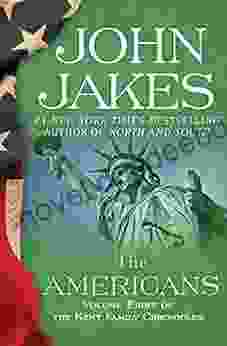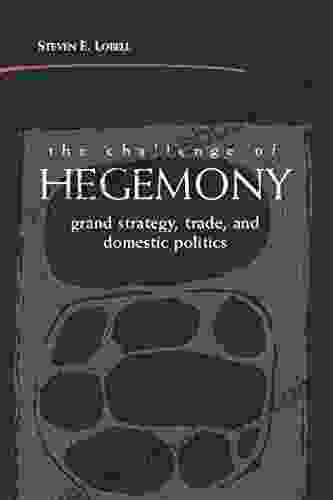Grand Strategy, Trade, and Domestic Politics: An Interplay of Power, Economics, and Society

Grand strategy, trade, and domestic politics are three interconnected forces that play a critical role in shaping the trajectory of nations. Grand strategy, defined as the overarching plan and set of objectives that guide a country's foreign policy and overarching political goals, provides the framework for understanding how states engage with the international system. Trade, the exchange of goods and services between countries, is a vital engine of economic growth and has profound implications for domestic politics. Domestic politics, in turn, influences both grand strategy and trade policy, as citizens and interest groups seek to shape government action in their favor.
This article will explore the complex relationship between these three elements, examining how they interact and influence each other in the pursuit of national interests and economic prosperity. We will begin by examining the historical evolution of grand strategy and its impact on trade and domestic politics. We will then consider the ways in which trade can both drive and constrain grand strategic choices. Finally, we will explore how domestic politics shapes trade policy and how trade policy, in turn, affects domestic politics.
4.5 out of 5
| Language | : | English |
| File size | : | 902 KB |
| Text-to-Speech | : | Enabled |
| Screen Reader | : | Supported |
| Enhanced typesetting | : | Enabled |
| Word Wise | : | Enabled |
| Print length | : | 256 pages |
| Hardcover | : | 116 pages |
| Item Weight | : | 8.2 ounces |
| Dimensions | : | 6 x 0.48 x 9 inches |
The Historical Evolution of Grand Strategy
The concept of grand strategy has evolved over centuries, reflecting the changing nature of international relations and the rise and fall of great powers. In the early modern period, grand strategy was primarily focused on military conquest and territorial expansion. As European powers competed for global dominance, they developed sophisticated strategies for waging war, building empires, and securing access to resources. Trade played a central role in these grand strategies, as it provided the wealth and resources necessary to sustain military campaigns.
In the 19th century, the Industrial Revolution transformed the global economy and led to a shift in grand strategic thinking. Industrialized nations increasingly focused on economic growth and the development of their domestic economies. Trade became a key driver of economic growth, as it allowed countries to specialize in the production of goods and services that they could produce most efficiently. This led to a period of globalization and increased interdependence among nations.
In the 20th century, the rise of fascism and communism challenged the existing international order and led to a new wave of grand strategic competition. The Cold War between the United States and the Soviet Union dominated global politics for decades, as each superpower sought to expand its sphere of influence and promote its own ideology. Trade became a tool of both economic and political competition, as the United States and its allies used trade to support friendly regimes and undermine their adversaries.
The end of the Cold War in 1991 ushered in a new era of globalization and economic interdependence. The United States emerged as the sole superpower, and its grand strategy focused on maintaining global stability and promoting economic growth. Trade became a central pillar of this strategy, as it helped to spread wealth and prosperity around the world and create a more integrated global economy.
Trade and Grand Strategy
Trade has always been a critical component of grand strategy, as it provides the economic foundation for military power and the ability to pursue national interests. In the early modern period, trade was essential for financing wars and building empires. In the 19th century, trade became a key driver of economic growth and helped to transform the global economy. In the 20th century, trade was used as a tool of both economic and political competition. And in the 21st century, trade remains a central element of grand strategy, as it helps to promote economic growth, reduce poverty, and strengthen international cooperation.
Trade can both drive and constrain grand strategic choices. On the one hand, trade can provide the economic resources necessary to pursue ambitious foreign policy goals. For example, the United States' ability to project power around the world is in part due to its strong economic foundation, which is supported by a large and vibrant trading sector. On the other hand, trade can also constrain grand strategic choices, as countries may be reluctant to take actions that could damage their economic interests. For example, the United States' decision to withdraw from the Trans-Pacific Partnership (TPP) trade agreement was motivated in part by concerns about the potential impact on American jobs.
Domestic Politics and Trade Policy
Domestic politics plays a significant role in shaping trade policy. Interest groups, political parties, and the general public all have a stake in trade policy, and they often exert pressure on governments to adopt policies that are favorable to their interests.
Interest groups are organizations that represent the interests of specific sectors of the economy. They often lobby governments to adopt policies that protect their members from foreign competition or to provide them with subsidies or other forms of support. For example, the American automobile industry has lobbied the U.S. government to impose tariffs on imported cars and to provide subsidies to domestic automakers.
Political parties also play a role in shaping trade policy. Different parties have different views on the role of trade in the economy, and they often adopt trade policies that are consistent with their broader economic and social policies. For example, the Republican Party in the United States has traditionally been more supportive of free trade than the Democratic Party.
The general public also has a say in trade policy. Public opinion polls often show that a majority of Americans support free trade, but there is also a significant minority who believe that free trade is harmful to the U.S. economy. This minority view is often represented by populist politicians who appeal to the fears of voters who feel that they have been left behind by globalization.
The Impact of Trade Policy on Domestic Politics
Trade policy can have a significant impact on domestic politics. Trade liberalization can lead to increased economic growth and job creation, which can benefit incumbent politicians and political parties. However, trade liberalization can also lead to job losses in certain sectors of the economy, which can hurt incumbent politicians and political parties.
For example, the North American Free Trade Agreement (NAFTA) led to increased trade between the United States, Canada, and Mexico. This led to economic growth and job creation in some sectors of the U.S. economy, but it also led to job losses in other sectors, particularly in manufacturing. The job losses in manufacturing were concentrated in certain regions of the United States, such as the Rust Belt, and this led to political backlash against NAFTA.
The impact of trade policy on domestic politics is complex and depends on a variety of factors, including the specific type of trade policy, the economic conditions at the time, and the political climate. However, there is no doubt that trade policy can have a significant impact on domestic politics.
Grand strategy, trade, and domestic politics are three interconnected forces that play a critical role in shaping the trajectory of nations. Grand strategy provides the framework for understanding how states engage with the international system, while trade is a vital engine of economic growth and has profound implications for domestic politics. Domestic politics, in turn, influences both grand strategy and trade policy, as citizens and interest groups seek to shape government action in their favor.
The relationship between these three elements is complex and ever-evolving. As the global economy continues to change and new challenges emerge, it is essential to understand the ways in which grand strategy, trade, and domestic politics interact and influence each other. By ng so, we can better prepare for the challenges of the future and ensure that our nations are able to achieve their economic and security goals.
4.5 out of 5
| Language | : | English |
| File size | : | 902 KB |
| Text-to-Speech | : | Enabled |
| Screen Reader | : | Supported |
| Enhanced typesetting | : | Enabled |
| Word Wise | : | Enabled |
| Print length | : | 256 pages |
| Hardcover | : | 116 pages |
| Item Weight | : | 8.2 ounces |
| Dimensions | : | 6 x 0.48 x 9 inches |
Do you want to contribute by writing guest posts on this blog?
Please contact us and send us a resume of previous articles that you have written.
 Novel
Novel Page
Page Text
Text Story
Story Genre
Genre Reader
Reader Paperback
Paperback Paragraph
Paragraph Shelf
Shelf Glossary
Glossary Bibliography
Bibliography Synopsis
Synopsis Annotation
Annotation Manuscript
Manuscript Codex
Codex Bestseller
Bestseller Library card
Library card Memoir
Memoir Reference
Reference Encyclopedia
Encyclopedia Thesaurus
Thesaurus Narrator
Narrator Character
Character Catalog
Catalog Card Catalog
Card Catalog Archives
Archives Study
Study Research
Research Scholarly
Scholarly Lending
Lending Reserve
Reserve Rare Books
Rare Books Special Collections
Special Collections Interlibrary
Interlibrary Literacy
Literacy Study Group
Study Group Dissertation
Dissertation Reading List
Reading List Book Club
Book Club Textbooks
Textbooks Steven Cutts
Steven Cutts Mark Johnson
Mark Johnson Ellen Finkelstein
Ellen Finkelstein Barbara Abercrombie
Barbara Abercrombie Laura Desisto
Laura Desisto Richard Graham
Richard Graham Nancy Morse
Nancy Morse Gareth Kelly
Gareth Kelly Gabrielle Danoux
Gabrielle Danoux Dave Mehler
Dave Mehler Doug Bandow
Doug Bandow Lawrence Knorr
Lawrence Knorr David Rothwell
David Rothwell Debbie Howells
Debbie Howells Lisa M Stasse
Lisa M Stasse Eric Standop
Eric Standop David Blair
David Blair Scott Strand
Scott Strand Jax Burrows
Jax Burrows 1st Edition Kindle Edition
1st Edition Kindle Edition
Light bulbAdvertise smarter! Our strategic ad space ensures maximum exposure. Reserve your spot today!

 Mario Vargas LlosaThe Americans: The Kent Family Chronicles - Unraveling the Secrets of an...
Mario Vargas LlosaThe Americans: The Kent Family Chronicles - Unraveling the Secrets of an... Forrest BlairFollow ·15.6k
Forrest BlairFollow ·15.6k Griffin MitchellFollow ·2.9k
Griffin MitchellFollow ·2.9k George MartinFollow ·8.8k
George MartinFollow ·8.8k Chandler WardFollow ·15.4k
Chandler WardFollow ·15.4k Eric NelsonFollow ·11.3k
Eric NelsonFollow ·11.3k Enrique BlairFollow ·16.8k
Enrique BlairFollow ·16.8k Jackson BlairFollow ·5.3k
Jackson BlairFollow ·5.3k Bernard PowellFollow ·12k
Bernard PowellFollow ·12k

 Bryce Foster
Bryce FosterPerforming Asian American Women On Screen And Scene
The representation of Asian American women...

 Frank Mitchell
Frank MitchellGirl Can Draw: A Spirited and Inspiring Play by Joe...
Prologue In the realm of...

 Marc Foster
Marc FosterThe Epic Story of Race and the American Media: A Journey...
From the Shadows of Slavery to the Dawn of...

 Demetrius Carter
Demetrius CarterThe Ultimate Guide to Hiking West Virginia: Discover the...
West Virginia, often referred to as...

 Isaiah Price
Isaiah PriceThe Ten Step Guide on How to Become Famous: Unleash Your...
In the captivating world of entertainment...
4.5 out of 5
| Language | : | English |
| File size | : | 902 KB |
| Text-to-Speech | : | Enabled |
| Screen Reader | : | Supported |
| Enhanced typesetting | : | Enabled |
| Word Wise | : | Enabled |
| Print length | : | 256 pages |
| Hardcover | : | 116 pages |
| Item Weight | : | 8.2 ounces |
| Dimensions | : | 6 x 0.48 x 9 inches |








